Contemporary Anglophone Drama

3rd semester
This introductory course examines the modern drama of the Anglophone peoples within the social and historical conditions of the 20th century and especially in connection with the specificity of theatre as a medium different from other arts and literary genres. Special attention is therefore paid to the conventions that dictate the modern dramatic text in its divergence from fiction and to the performance as a signifying process. At the same time, a development is emphatically traced in 20th-century drama from Realism to the Theatre of the Absurd, The lesson aspires to make the students aware of the dramatic text as a complex system that on the one hand, includes its own representation, especially in the stage directions, and, on the other, it is traversed by the historical moment of its production.
A) Introduction to key terms:
- Theatre and Drama
- Theatre and Narrative Fiction
- The Specificity of Theatre
- Stage/Auditorium Arrangement
- Performance-Staging
- Dramatic Action
- Dramatic Action--- Story and Plot
- Dramatic Character
- Dramatic Dialogue
- George Bernard Shaw, Pygmalion (1913). E book
- Harold Pinter, The Dumb Waiter (1957). The Norton Anthology Vol. 2
- Harold Pinter, The Birthday Party (1957). E book
- Samuel Beckett, Waiting for Godot (1948). E book
- Cohn, Ruby, ed. Casebook on Waiting for Godot. New York, 1967.
- Innes, Christopher. The Cambridge Companion to Bernard Shaw. Cambridge, 1998.
- Kennedy, Andrew. Samuel Beckett. Cambridge, 1989.
- Matejka, Ladislav and Irwin Titunik, eds. Semiotics of Art: Prague School Contributions. Cambridge, Mass., 1976.
- Pilling, John. The Cambridge Companion to Beckett. Cambridge, 1994
Jane Austen
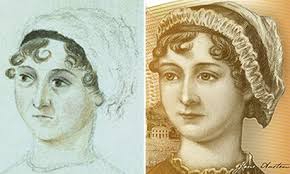
6th semester, elective
The course discusses Austen’s novels in the sociopolitical context of early nineteenth-century England by focusing on the cracks in the moral and economic aristocratic hegemony. Without losing sight of Austen’s political conservativism my reading concentrates on the contradictions and ambiguities in gender representations. I treat them as telling instances of a kind of narrative which cannot always contain the oppositional voices that the author herself has constructed in order to control them. Austen’s language, therefore, is thoroughly analysed as an imprint of her embarrassment in the face of female desire, while, at the same time, plot manipulations are emphasised as the means to which she resorts in order to contain it. Therefore, the “happy end” which closes the narrative, for all its didacticism, or rather because of it, betrays precisely this kind of embarrassment.
Plays:
- Introduction: Historical overview, The Realist novel
- Jane Austen (1775-1817) and her time
- Jane Austen and conventions of narrative
- Sense and Sensibility (1811)*
- Pride and Prejudice (1813)*
- Mansfield Park (1814)
- Emma (1816)*
- Northanger Abbey (1817)
- Persuasion (posthumously 1818)*
- Gilbert, Sandra and Susan Gubar. The Madwoman in the Attic: The Woman Writer and the Nineteenth Century Literary Imagination. New Haven, 1979. Read everything concerning Jane Austen.
- Todd, Janet. Gender, Art and Death. Cambridge, 1993. Read chapters 8 and 9.
- Todd, Janet. Gender, Art and Death. Cambridge, 1993. Read chapters 8 and 9.
- Walder, Dennis. The Realist Novel. London, 1995. Read ONLY Edward Said, Raymond Williams and Arnold Kettle.
Irish Drama: The Abbey Theatre
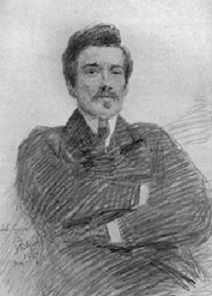
7th semester
The course considers the founding principles of the Abbey Theatre (1905) in the context of the Irish struggle for political and national emancipation from the British rule. It focuses on the Abbey’s ideal of a theatre that would harmonically combine the national quest for an autonomous Irish cultural identity, as expressed by W. B. Yeats and Lady Gregory, with experimental forms of drama. It examines the work of John Millington Synge and Sean O’Casey by emphasising those areas in which these dramatists diverge from the oppressive catholic and nationalist orthodoxy that emerged as the dominant ideological discourse and, at the same time, from the stilted naturalism which was bound to dominate subsequently the Abbey’s theatrical production.
Plays:
- John Millington Synge, The Playboy of the Western World
- Sean O’ Casey, Juno and the Paycock
……………….The Shadow of a Gunman
………………: The Silver Tassie
- Grene, Nicholas. The Politics of Irish Drama: Plays in Context from Boucicault to Friel. Cambridge: CUP, 1999.
- Levitas, Ben. The Theatre of Nation. Irish Drama and Cultural Nationalism, 1890-1916. Oxford: Clarendon, 2002.
Political discourse in 17th-century literature
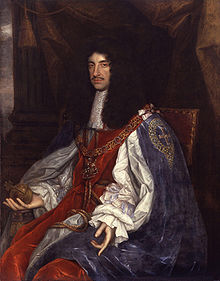
8th semester
Ο 17ος αιώνας υπήρξε καθοριστικός για τη διαμόρφωση της πολιτικής σκέψης και των θεωριών περί διακυβέρνησης στην Αγγλία. Χρησιμοποιώντας τον Πολιτισμικό Yλισμό και το Νέο-ιστορικισμό, και με βάση τις πολιτικές θεωρίες του Ιακώβου Ι Στιούαρτ, του Thomas Hobbes και του John Locke το μάθημα αυτό εξετάζει τους τρόπους με τους οποίους η λογοτεχνία του 17ου αιώνα (με εξαίρεση το Interregnum) συμμετέχει στον ευρύτερο κοινωνικό προβληματισμό που αφορά στις έννοιες της εξουσίας, του νόμου και της αντίστασης. Στόχος του μαθήματος είναι να αναδείξει την περίπλοκη και αντιφατική σχέση του υποκειμένου με την εξουσία αλλά και τους τρόπους με τους οποίους ιδιαίτερα στη λογοτεχνία της Παλινόρθωσης αναπαρίστανται οι πολιτικές αλλαγές και ρήξεις στη σχέση της μοναρχίας με τα λαϊκά στρώματα.
This course examines the ways in which seventeenth-century literature (the Interregnum exempted) participates in the wider problematics concerning notions of authority, legitimation and resistance, as articulated by the political theories of James I, Hobbes and Locke. It focuses on the contradictions and complexities deriving from the subject’s position in the face of absolutist government while, at the same time, it shifts the emphasis from the gentry to the representation of the people’s agency, however ambiguous, in Restoration literature.
Primary Texts:
- Webster, John. The Duchess of Malfi. The Norton Anthology of English Literature, Volume I
- Behn, Aphra. Oroonoko. The Norton Anthology of English Literature, Volume I
- Congreve William. The Way of the World. The Norton Anthology of English Literature, Volume I
- Hobbes, Thomas. From Leviathan. The Norton Anthology of English Literature, Volume I
- Locke, John. Chapter IV, of Slavery (283-285), from Chapter XVIII, of Tyranny (398-402), Chapter VII, of Political or Civil Society (318-330). From Two Treatises of Government. Ed. Peter Laslett, Oxford: CUP, 1994.
- Velissariou, Aspasia. Female Sexual Transgression in Jacobean Tragedy. Athens: National and Kapodistrian University of Athens, 2002.
Jacobean Drama
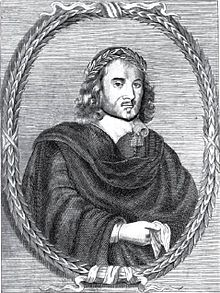
Elective 8th semester
This course examines representative Jacobean tragedies in the context of the manifold crisis that traverses early seventeenth-century England. This crisis is essentially political insofar as James II attempts to introduce principles of absolute monarchy into the government of the kingdom. The analysis of the tragedies focuses on the ways in which the specific texts and the theatre of the time register oppositional discourses and practices that, while partly and/or seemingly adhering to the prevalent ideological dictates, at the same time radically question them. Gender representations emerge as the dominant concern since they inscribe a crisis in sexual relationships as a result of the general destabilisation of values.
Plays:
- Cyril Tourner: The Revenger’s Tragedy
- John Webster: The Duchess of Malfi
- …………..: The White Devil
- Thomas Middleton and William Rowley: The Changeling
- Catherine Belsey, The Subject of Tragedy (London: Methuen, 1985)
- Jonathan Dollimore, Radical Tragedy (Brighton: Harvester, 1984)
- Dympna Callghan, Woman and Gender in Renaissance Tragedy, (Brighton: Harvester, 1989), pp. 148-54
- J. W. Lever, The Tragedy of State (London: Methuen, 1971), pp. 1-15 and 78-95.
- Sara Eaton, “Beatrice-Joanna and the Rhetoric of Love” in Staging the Renaissance eds.David Sott Kastan and Peter Stallybrass (London: Routledge, 1991), pp. 275-89.
Gender and Authority in Seventeenth-Century Drama
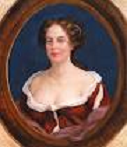
This course examines how gender representations are structured in seventeenth-century English tragedy and comedy. The basic methodological premise is that sexual relationships and marriage are the terrain par excellence in which power relationships are registered, hence the drama’s intense preoccupation with these issues. The aim of the course is to demonstrate the ideological and widely cultural shifts, and the concomitant contradictions, that emerge in gender roles and positions in the course of the century. The context is the increasing distinction between the private and public spheres, which prepares the grounds for the middle-class privileging of the former over the latter in eighteenth-century England.
Gender and Authority in Early Seventeenth-Century England (1603-1625):
- Femininity as an ideological construct determined by patriarchal discourses of female subjection, which are reinforced and reproduced by James’s absolutist notions of government.
- Female marital choice as a subversive gesture and “unruly” heroines in Jacobean tragedy.
Plays:
- John Webster, The Duchess of Malfi (Norton Anthology of English Literature, Vol. I)
- Thomas Middleton, The Changeling in Gamini Salgado (ed.), Three Revenge Tragedies (London: Penguin, 2004)
Gender and Authority in Restoration (post 1660) England:
Plays:
- Aphra Behn, The Rover (Part I) in Janet Todd (ed.), Aphra Behn: Oroonoko, The Rover and Other Works (London: Penguin, 1992)
- William Congreve, The Way of the World (Norton Anthology of English Literature, Vol. I)
Bibliography:
- Callaghan, Dympna. Women and Gender in Renaissance Tragedy: A Study of King Lear, Othello, The Duchess of Malfi and The White Devil. London: Harvester and Wheatsheaf, 1989.
- Fletcher, Anthony. Gender, Sex, and Subordination in England, 1500-1800. New Haven: Yale UP, 1995.
- Howard, Jean. “Was there a Renaissance Feminism?” A Companion to English Renaissance Literature and Culture. Ed. Michael Hattaway. Oxford: Blackwell, 2003.
- Todd, Janet. Aphra Behn. London: Macmillan, 1999.
- Velissariou, Aspasia. Female Sexual Transgression in Jacobean Tragedy. Athens: National and Kapodistrian University of Athens, 2002.
Restoration Comedy
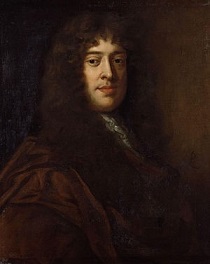
This course examines Restoration Comedy in the context of political and cultural changes brought about by the restoration of the Stuart monarchy in 1660. Emphasis is placed on gender representations in a game of power in which the aristocratic male sexual and political ascendancy inscribes the Puritan and business-oriented middle classes’ defeat as impotence. Hence, the winners of the Civil War are humiliated in a kind of comedy that celebrates wit, male cuckolding, homosocial bonding and cynical materialism, especially in Etherege and Wycherley, while a shift to moral values is noted in Congreve’s comedy which privilege men’s romantic love over sexual appetite.
Plays:
- Sir George Etherege, The Man of Mode
- William Wycherley, The Country Wife
- William Congreve, Love for Love
William Shakespeare
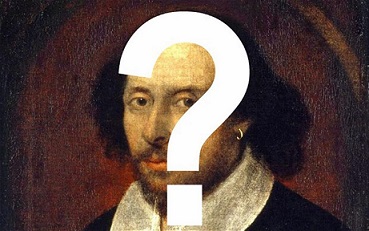
Introduction:
- Historical conditions in England {1558-1610}
- The Elizabethan theatre {1576-1642}: cultural and social character, construction and dramatic text.
Plays:
- Macbeth {1606}, ed. Kenneth Muir, The Arden Shakespeare (London, 1986).
- The Tragedy of King Lear {1604-05}, ed. Jay Hallio, The New Cambridge Shakespeare, Cambridge, 2005
- The Tempest (1611}, ed. Virginia Mason Vaughan and Alden T. Vaughan, The Arden Shakespeare (London, 2000).
Bibliography:
On Macbeth
- William Shakespeare, Macbeth: Texts and Contexts. Ed. William C. Carrol. Bedford/St Martin’s, 1999. 1. Introduction pp. 1-21. 2. The Jacobean Theory of Kingship pp. 206-220. 3. Resistance in Theory, pp. 231-236. 4. George Buchanan, from The Powers of the Crown in Scotland, pp. 242-44.
- Dollimore, Jonathan. Radical Tragedy: Religion, Ideology and Power. Brighton, UK: The Harvester Press, 1984. Chapter 12.
- Barker, Francis and Peter Hulme. “Nymphs and reapers heavily vanish: The discursive contexts of The Tempest.” Alternative Shakespeares. Ed John Drakakis. London: Routledge, 1996. 190-205.
- Brown, Paul. “‘This thing of darkness I acknowledge mine’: The Tempest and the discourse of colonialism.” Political Shakespeare: Essays in Cultural Materialism. Eds. Dollimore, Jonathan and Alan Sinfield. Manchester: Manchester UP, 1994. 48-71.
Thomas Hobbes, John Locke and Restoration Literature: Authority, the Subject and Ideology, 1660-1700. I.

Postgraduate course
The course aims to study Restoration literature on the basis of the rich and manifold problematic of the time on notions of government, the law, the family and sexual ethics. It focuses on the ways in which the major political tenets of Thomas Hobbes in Leviathan and of John Locke in Two Treatises of Government are registered in the highly politicized literature of the Restoration. The selection of a number of texts that represent different genres (poetry, drama, novel) demonstrates the extent to which Restoration literature, contrary to traditional critical views, offered the terrain for a crucial debate on the political, patriarchal and gender authority, which questioned, while at the same time affirming, the dominant ideology at the specific historical moment.
- Behn, Aphra. The Widow Ranter. In Behn: Five Plays. Ed. Maureen Duffy. London: Methuen, 1990.
- …………. . Oroonoko: Or, The Royal Slave. In The Norton Anthology of English Literature, vol. 1. Ed. M. H. Abrams. 7th ed. New York: W. W. Norton, 2000.
- Congreve, William. Love for Love. In Three Restoration Comedies. Ed. Gamini Salgado. London: Penguin Books, 1986.
- ………….. . The Way of the World. In The Norton Anthology of English Literature, vol. 1. Ed. M. H. Abrams. 7th ed. New York: W. W. Norton, 2000.
- Dryden, John. “Absalom and Achitophel.” In The Norton Anthology of English Literature, vol. 1. Ed. M. H. Abrams. 7th ed. New York: W. W. Norton, 2000.
- Hobbes, Thomas. Leviathan. Ed. Richard E. Flathman and David Johnston. A Norton Critical Edition. New York and London: W. W. Norton, 1997.
- Chap. 1: Of Sense.
- Chap. 6: Of the interiour Beginnings of Voluntary Motions, commonly called the Passions; And the Speeches by which they are expressed.
- Chap. 11: Of the Difference of Manners.
- Chap. 13: Of the Naturall Condition of Mankind as concerning their Felicity and Misery.
- Chap. 17: Of the Causes, Generation, and Definition of a Commonwealth.
- Chap. 18: Of the RIGHTS of Soveraignes by Institution.
- Chap. 20: Of Dominion Paternall, and Despoticall. Locke, John. Two Treatises of Government. Ed. Peter Laslett. Cambridge: Cambridge UP, 1994.
- from Chap. 6: Of Adam’s Title to Sovereignty by Fatherhood 50-67.
- Chap. 2: Of the State of Nature 4. 6. 7. 13. 14.
- Chap. 6: Of Paternal Power.
- Chap. 7: Of Political, or Civil Society.
- Chap. 8: Of the Beginning of Political Societies 95-99.
- Chap. 9: Of the Ends of Political Society and Government 123-131.
- Chap. 15: Of Paternal, Political, and Despotical Power, considered together.
The Earl of Rochester. The Works of the Earl of Rochester. Ed. David Vieth. Hertfordshire: Wordsworth, 1995.
“A Song” (12), “To Love” (35-37), “The Imperfect Enjoyment” (37-40), “A Ramble in St. James’s Park” (40-46), “Song” (51), “A Satyr on Charles II” (60-61), “Upon His Leaving His Mistress” (81), “Against Constancy” (82), “A Satyr against Reason and Mankind” (94-101), “A Very Heroical Epistle in Answer to Ephelia” (113-15), “Upon Nothing” (118-20).
- Ashcraft, Richard. “Locke’s Political Philosophy.” In The Cambridge Companion to Locke. Ed. Vere Chappell. Cambridge: Cambridge UP, 1997. 226-51.
- Schochet, Gordon J. The Authoritarian Family and Political Attitudes in 17th-Century England: Patriarchalism in Political Thought. New Brunswick (USA): Transaction Books, 1988. Chaps. 12 and 13.
- Sommerville, Johann. “Lofty Science and Local Politics.” In The Cambridge Companion to Hobbes. Ed. Tom Sorell. Cambridge: Cambridge UP, 1996. 246-73.
- Staves, Susan. The Players’ Scepters: Fictions of Authority in the Restoration. Lincoln: Nebraska UP, 1994. Chap. 3.